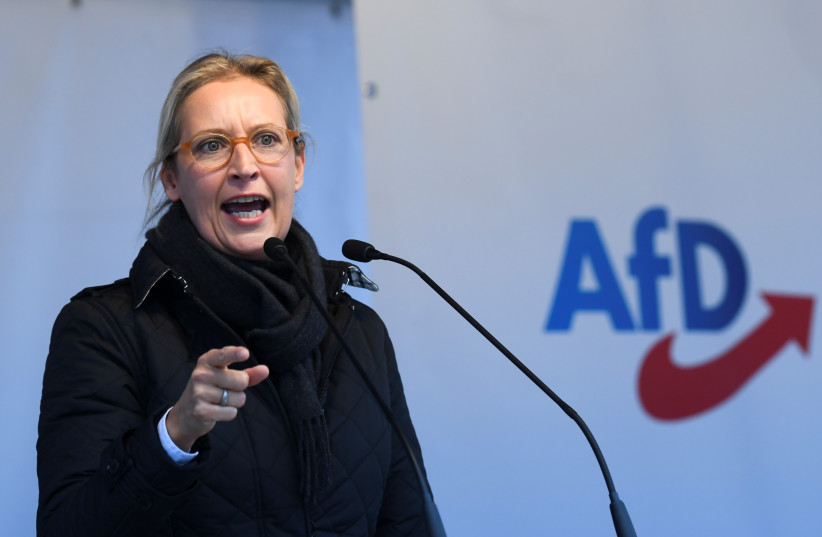A group of people celebrating the Oktoberfest beer festival were captured making Nazi salutes as a famous Nazi song played in the background, according to a video posted on X (formerly Twitter) on Wednesday.
The video shows three men and one woman dressed in traditional Bavarian clothing repeatedly making Nazi salutes while celebrating in an Oktoberfest tent in the eastern German village of Bautzen in Saxony. The Nazi-era marching song “Erika” was played loudly in the background as the group of four celebrated, with one man making up to 15 Nazi salutes in the 16-second clip.
Performing Nazi salutes has been illegal in Germany and Austria since the end of World War II and is punishable by law with prison sentences ranging from three months to five years.
Saxony police and Germany's State Security Service have launched investigations into the incident.
Right-wing politics resurface in Germany

The incident highlights rising fascist views in Germany, which has seen tremendous efforts go into making the European country a beacon of tolerance and human rights since its infamous Third Reich.
The new right-wing political push has been led by the Alternative für Deutschland (AfD) party, a formerly fringe far-right political party that has gained mainstream acceptance in recent years. The party won a run-off vote in the Sonneberg district in the eastern state of Thuringia in June with its candidate, Alice Weidel, garnering 52.8% of the vote.
The right-wing, populist AfD party currently has gained the support of about 35% of the electorate in electoral polls in the state of Saxony, according to CBS News.
Germany's domestic intelligence agency said that far-right extremism posed the biggest threat to democracy in Germany and warned voters about backing the AfD amid Weidel's election.
"This is a watershed that this country's democratic political forces cannot simply accept," Josef Schuster, President of the Central Council of Jews in Germany, told the German newspaper RND Media in June.
